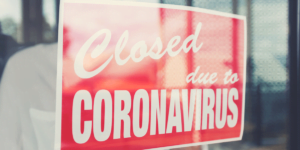
Experienced personal injury attorneys have a good idea of whether or not a case is winnable going in, and of course, many cases settle long before a court date is even set. When this happens, victims are often satisfied with the result and have the fair compensation they need to help them move on with their lives.
However, it is possible that at the end of a settlement negotiation, you will feel that you have conceded more than you thought you should have. If this is the case, you are unfortunately in a bad position, because almost no one will settle in court without a written and signed agreement stating that you will no longer pursue legal recourse. In short, it is nearly impossible to continue a lawsuit after you have settled. However, there are a few exceptions to this rule.
If you have any questions regarding filing a lawsuit after a settlement you are unhappy with, the South Bend personal injury attorneys at Pfeifer, Morgan & Stesiak are ready to help. Call us today for a free, no-obligation consultation and we will review your situation.
What to Do Before Accepting a Settlement
Before accepting a settlement, it is important that you have taken appropriate steps to fully assess the value of your damages so you will know if the settlement is fair. These steps may include:
- Seeking medical attention after the accident: This is a crucial step to take after an accident. A licensed health care provider can properly examine and diagnose your injuries and note those injuries in your medical records. If you wait to seek treatment, attorneys and/or insurance companies for the other party may argue you are not really hurt and are just trying to get money. This could make it much more difficult to get the other side to make a fair offer of compensation. You should also follow all of your physician’s orders so that you can recover as soon as possible. Failure to follow your health care provider’s orders may also hurt the value of your settlement.
- Evaluating the economic effects your injury may have: It is important to consider how your injuries will affect the quality of your life. This can include how injuries prevent you from working. If you are unable to do the work you once did because of your injuries, you are entitled to pursue compensation for your lost earning capacity.
- Seeking advice from a personal injury lawyer: Having a lawyer who has experience helping other accident victims obtain fair settlements is crucial. Your lawyer will have a better understanding of the value of your claim and will fight for maximum compensation to ensure you are compensated fairly.
After taking these steps, you will have a better idea of the impact of your injuries on your life. Then you will know if the settlement offer you have received is fair or if your attorney needs to continue negotiating for a better offer.
When Can You Sue After a Settlement?
In most situations, once you accept a settlement you sign a liability release, or agreement, that states you are receiving a certain amount of compensation and relinquishing your right to further pursue a claim.
The liability release legally binds you to comply with the conditions of receiving the settlement proceeds. This waiver also assures the insurance company that you will not continue to pursue compensation for the same accident including any legal claim you may have against the at-fault party. However, there are some rare exceptions to this rule, such as when fraud is involved, or the accident involves multiple parties.
Settlements Before Lawsuits
If you settled before filing a lawsuit, but you have not yet signed the liability release, it may be possible to get out of the settlement if you have a serious dispute with the other party about the terms of the settlement.
Hiring a lawyer at this point is a good idea if you have not already. Insurance adjusters are not likely to change their minds if they are involved in a dispute with someone who is not represented by an attorney. However, keep in mind, even if you have a lawyer, the other party may not renegotiate the terms of the release. You will be left with two options: sign it or file a lawsuit and hope a judge will let you out of the settlement.
The Defendant Entered into the Settlement in Bad Faith
This is a rare situation, and it can be very difficult to prove. Essentially, you have to establish in your suit that there was fraud on the part of your opponent in the initial settlement. Fraud laws vary, however, fraud typically consists of certain elements, such as:
- Purposefully misrepresenting an important fact
- Having knowledge that this fact is false
- Presenting the fact to a victim who justifiably relies on the misrepresented fact
- The victim suffers losses as a result of the misrepresentation
If you believe you have found that you and your attorney were defrauded in a settlement negotiation, proceed very carefully. You could greatly benefit from having a highly experienced and qualified lawyer to tackle this kind of situation. Our attorneys at Pfeifer, Morgan & Stesiak can investigate your situation and guide you through the legal process.
Multiple Parties Were Involved in Your Accident
This is a more common situation and has a higher chance of success. Often a suit will name more than one defendant as responsible parties in the accident, and settlement negotiations will take place with all of the responsible parties separately.
However, it is possible that you will find a third party was partially responsible for your accident and you did not initially know about this. For example, an automobile manufacturer could be found to have produced a defective part with a known defect that contributed to your accident. You may still have time to file a lawsuit against this entity.
However, sometimes settlements say you agree to give up all potential claims against anyone for the injury you suffered. This would prohibit you from filing a lawsuit against another party over the same injury.
What Limitations Do I Face?
It is important to keep in mind that all personal injury suits must still be brought before the courts within Indiana’s statute of limitations.
This is a law that sets the maximum time in which an individual can take legal action. In Indiana, personal injury cases, such as car accidents, slip and falls, and motorcycle accident lawsuits must be filed within two years from the date the accident occurred. All action initiated after this time will be dismissed by the court and you will be barred from receiving compensation for the damages you incurred in the accident.
Even though you may be able to file a lawsuit after accepting a settlement, the bottom line is that settlements out of court are still legal proceedings, and after they are signed and sealed, they are binding contracts. Before you enter into a settlement, be sure that you discuss with your attorney what you are and are not willing to settle for.
Seek Legal Assistance from a Qualified Attorney Today
Before agreeing to the terms of an insurance settlement and signing a liability release, it is important that you fully understand the extent of your injuries. That is why it is in your best interest to discuss your case with a skilled lawyer before agreeing to a settlement that you will most likely not benefit from. An experienced South Bend personal injury attorney is your guide and advocate in these proceedings, and it is important that you discuss everything with him or her so that he or she can pursue a settlement that you deserve.
The reputable attorneys at our firm have the knowledge and experience needed for handling these kinds of cases and we are here to help. Call us today for a free consultation with one of our qualified and compassionate personal injury lawyers. We handle our cases on a contingency fee basis, so there are no upfront fees unless we successfully obtain compensation on your behalf.
Call us at (574) 444-0741 to get started.













